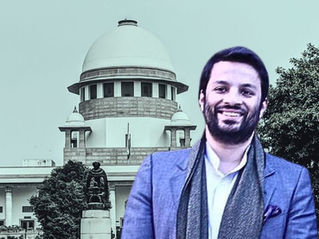India

Since the election of the Bharatiya Janata Party (BJP), led by Narendra Modi, in 2014, India has been witnessing an authoritarian turn. This process of autocratization is captured well in some of V-Dem’s variables that range from 1 to 0. On the “Liberal Democracy Index”, a decrease from 0.53 in 2013 to 0.28 in 2023 can be observed.[1] India’s “Academic Freedom Index” (AFI) score also deteriorated in the same period but faced an even starker decline from 0.62 in 2013 to 0.18 in 2023.[2] The AFI 2024 demonstrates how polarization and indicators of academic freedom show a strong inverse relationship, while also noting this relationship only holds in some cases.[3] In its most recent report on India, Freedom House attributed factors like pressure and censorship on opposition students and scholars, appointment to administrative positions based on party loyalty, and mob violence by Hindu nationalists to the decline in academic freedom in India.[4] In total, Scholars at Risk (SAR) identified over 130 instances of restriction of academic freedom in India between 2017 and 2022, which includes physical attacks, police and state violence, as well as administrative sanctions and punishments.[5]
The policies of the BJP government are the source of some of the most significant restrictions to academic freedom. Recently, the Indian government has been targeting Overseas Citizens of India[6], who are critical of the Hindu-nationalist policies of the BJP by revoking their status as overseas citizens, which takes away their visa privileges and requires them to seek permission from the government to do research or journalism.[7] Additionally, the BJP government has been changing school curricula and content of textbooks to erase the history of Hindu-nationalist ethnic violence, as well as the role of Muslims in the history of the Indian subcontinent.[8] The intervention into education also extends to higher education. As the Kerala State government’s appeal to the Supreme Court from April 1, 2024, shows, the government has been using federally appointed governors to delay and block state legislation aimed at localizing control over educational institutions, and to influence the process of who gets appointed to vice-chancellor positions at universities.[9]
This being said, some university administrations are also to blame for the decline of academic freedom in India. One example is from Jawaharlal Nehru University in New Delhi where administrators, on December 14, 2023, introduced a new set of rules for protests on campuses. The new guidelines introduced a ban on all protests happening in a 100-meter radius of academic buildings as well as penalties for a wider range of protest activities like distributing pamphlets that include “objectionable comments” on religion or caste, or “engaging in activities deemed anti-national”.[10] In another example, two professors resigned from the Economics Department at Ashoka University located in Sonipat, after the university tried to influence the department’s process of evaluation of an academic paper which was about democratic backsliding in India.[11] The faculty members of three departments later issued statements in which they accused the university of infringing upon the academic freedom of its faculty members.[12]
Aside from the government and the university administrations, academic freedom in India is under the threat of mob violence, especially targeting Muslim students. On March 16, 2024, around 15 international students of Muslim faith were attacked by an armed group of 25 people for praying in their on-campus housing at Gujarat University.[13] Likewise, at Savitribai Phule Pune University, a 19-year-old Muslim student was harassed and beaten up by a group that threatened to kill him if they saw him on campus again.[14]
Endangered Scholars Worldwide is monitoring the developments around academic freedom in India with deep concern. We call upon the Indian government to immediately halt ongoing efforts to restrict the academic freedom of all members of university campuses including students and faculty members and to create the conditions in which campus members can freely engage in academic activities. We further call upon the members of the international community dedicated to protecting human rights to echo our calls to the Indian government to uphold human rights within its territories, which it has guaranteed under international law.
(Last updated: June 12, 2024)
Please send appeals to the following:
Narendra Modi
Prime Minister of India
Email:pmosb@pmo.nic.in
Fax:+ 91 11 2301 685
Dhananjaya Yeshwant Chandrachud
Chief Justice of India
Email:supremecourt@nic.in
Ruchira Kamboj
Indian Permanent Representative to the United Nations
United Nations
235 East 43rd Street
New York, 10017
USA
Sources:
[1] Coppedge et al. (2024). V-Dem [Country-Year/Country-Date] Dataset v14” Varieties of Democracy (V-Dem) Project. https://doi.org/10.23696/mcwt-fr58.
[2] Ibid.
[3]https://academic-freedom-index.net/research/Academic_Freedom_Index_Update_2024.pdf
[4] https://freedomhouse.org/country/india/freedom-world/2024
[6] This status can be given to foreign citizens of Indian origin under which they receive visa privileges. It does not include full citizenship rights. https://www.mha.gov.in/PDF_Other/BROCHURE_OCI_25042017.pdf
[7]https://www.hrw.org/news/2024/03/17/india-authorities-revoke-visa-privileges-diaspora-critics
[9]https://www.timeshighereducation.com/news/crisis-indian-states-battle-bjp-control-universities
[10]https://www.universityworldnews.com/post.php?story=20231214130326960
[12]https://indianexpress.com/article/cities/delhi/ashokauniversity-economics-prof-solidarity-8896643/
































